Imagine this—you’re at a business event, and the keynote speaker is someone you deeply respect in your industry.
You’re hooked, right?
That’s the magic of B2B influencer marketing.
It’s no longer just a buzzword; it’s a strategy that’s helping businesses drive engagement and gain credibility.
In this post, I’ll walk you through 11 powerful B2B influencer marketing examples.
You’ll see how top companies are leveraging this strategy to crush it in the business world.
Let’s dive in!
1. IBM Think 2024
IBM is a global technology company specializing in cloud computing, artificial intelligence (AI), and enterprise solutions. With a rich history of innovation, it is known for helping businesses stay ahead in the digital age.
Approach:
IBM’s Think 2024 conference was designed to showcase its latest technologies and solutions. The company partnered with industry leaders, including tech experts and influencers, to make the event more impactful.
IBM brought influencers on board to deliver keynote speeches and lead panel discussions.
These experts shared their knowledge on topics like AI and cloud computing by mentioning IBM’s products into their narratives. Influencers also created social media posts, blog articles, and videos during and after the event which amplified its reach.
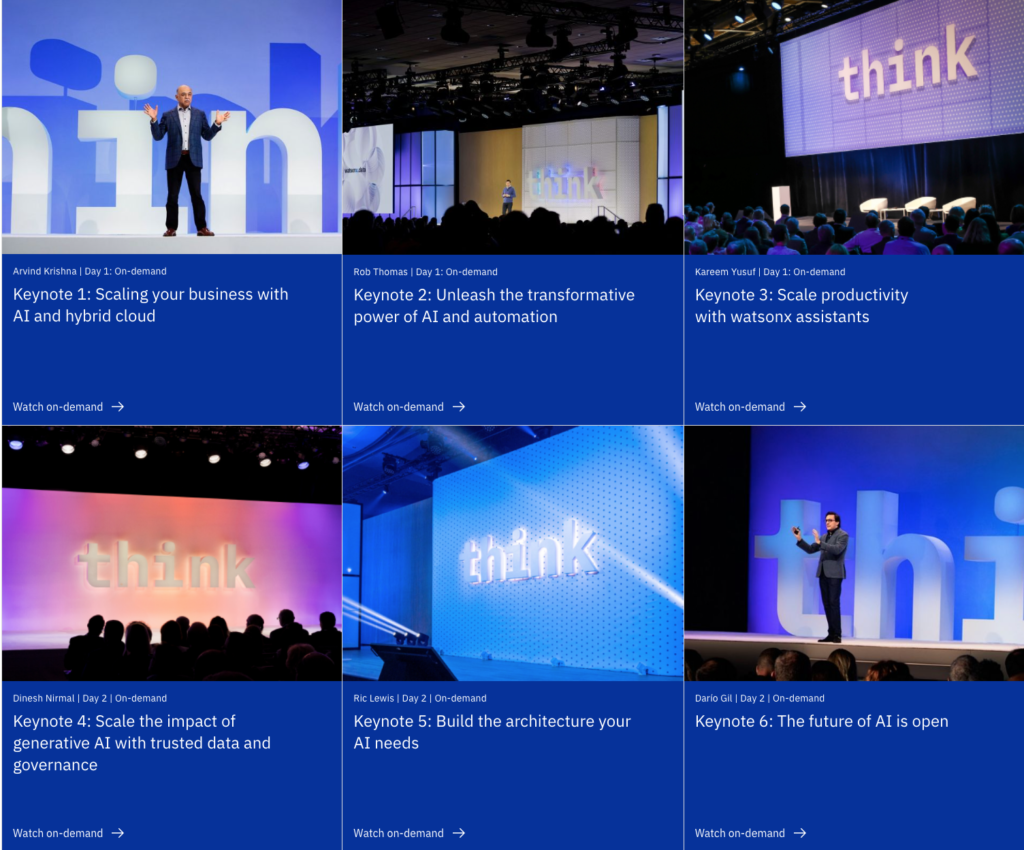
Success:
Here’s how attendees felt about their experience:
- 94% were highly satisfied with the opportunity to build stronger relationships with IBM.
- 91% were very pleased with their interactions with IBM leaders and experts.
- 90% found the content and experiences directly relevant to their roles, leaving inspired to act.
2. Google Influencer Marketing
Google, a technology leader, is known for its search engine, cloud services, and enterprise solutions.

Approach:
Google used Instagram influencers to promote two of its products: the Pixel 2 smartphone and the Google Home Mini smart speaker.
For the Pixel 2, Google partnered with 51 influencers ranging from micro (small audience) to macro (large audience). These influencers shared 61 posts using hashtags like #teampixel and @madebygoogle, showcasing the phone’s advanced camera and features.
For the Google Home Mini, 17 influencers created content highlighting how the device simplified everyday tasks. They focused on relatable use cases, such as managing schedules or controlling smart home devices.
Success:
- Pixel 2 campaign: 350,000 likes and 4,000 comments.
- Google Home Mini campaign: 175,000 likes and 2,200 comments.
3. LinkedIn #InItTogether Campaign
LinkedIn is the world’s largest professional networking platform which connects job seekers, businesses, and industry professionals.
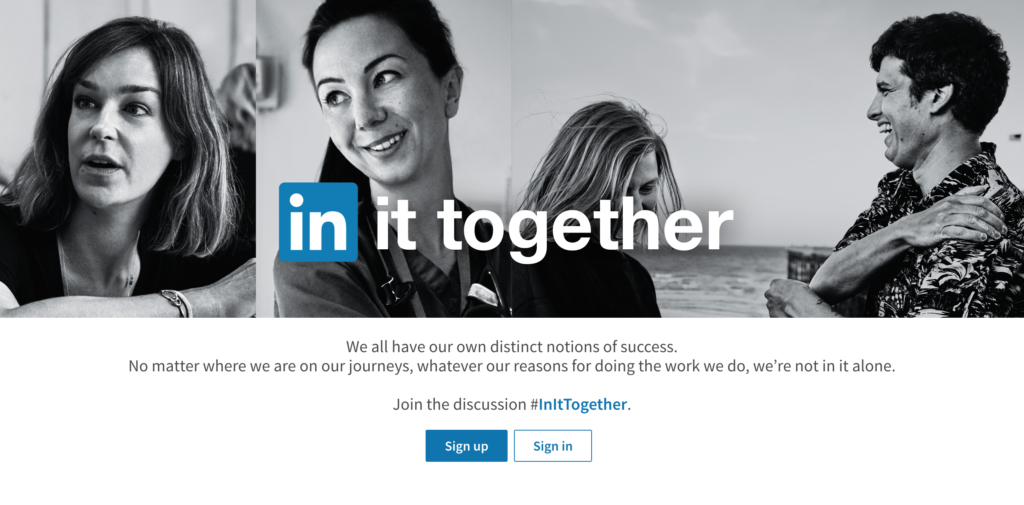
Approach:
LinkedIn launched the #InItTogether campaign to showcase how its platform helps users achieve professional growth. The campaign featured influencers sharing personal success stories tied to LinkedIn.
The campaign was authentic and relatable. The content highlighted LinkedIn’s role as more than just a job board—it’s a community.
Success:
This campaign impacted professional lives of the users who engaged within the campaign. It was all qualitative.
4. Slack Frontiers Conference
Slack is a collaboration platform designed to enhance workplace communication and productivity.
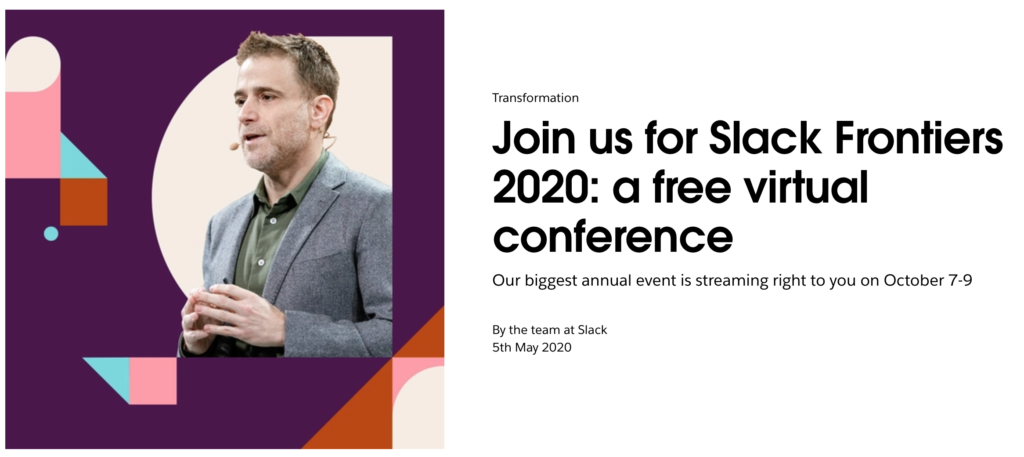
Approach:
Slack hosted its Frontiers Conference, inviting tech and workplace influencers to discuss the future of work and how Slack plays a pivotal role in it.
At the conference, influencers participated in panel discussions, live Q&A sessions, and social media campaigns. They shared insights about trends like remote work and team collaboration while showcasing Slack’s features
Success:
The campaign helped position Slack as a thought leader in workplace innovation, leading to higher adoption rates among businesses.
5. Oracle CloudWorld 2024
Oracle offers cloud applications and platform services for businesses.
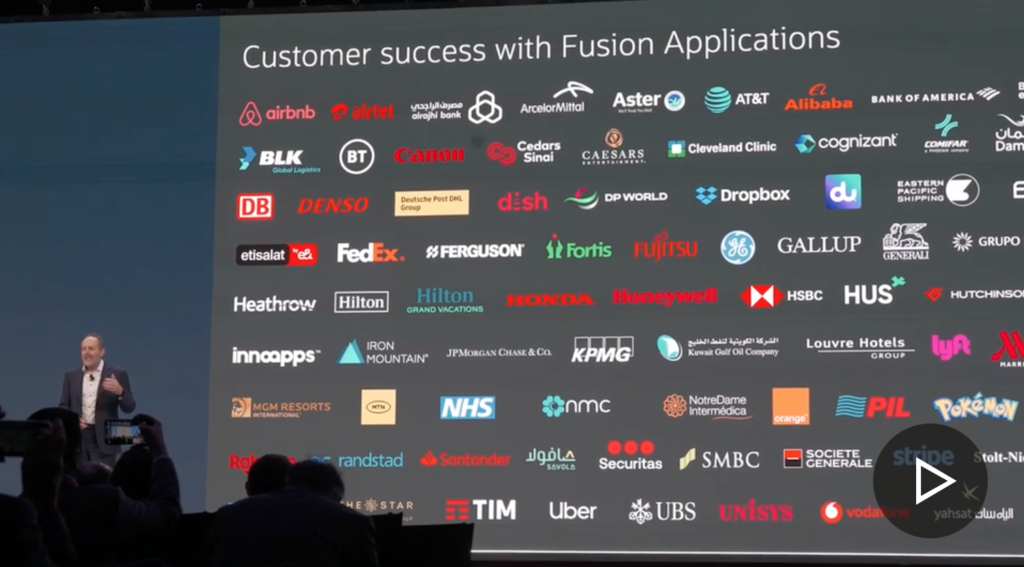
Approach:
Oracle’s CloudWorld conference featured influencers discussing enterprise technology trends and Oracle’s innovative solutions.
Oracle invited influencers to speak on topics like cloud computing, AI, and data analytics. These influencers also live-tweeted during sessions, shared blog posts, and participated in interviews.
What Were the Results?
- Increased social media buzz around Oracle’s products.
- Reinforced Oracle’s status as a leader in enterprise technology.
6. ZenDesk AI Summit
Zendesk provides customer service solutions for businesses to improve their customer experience.
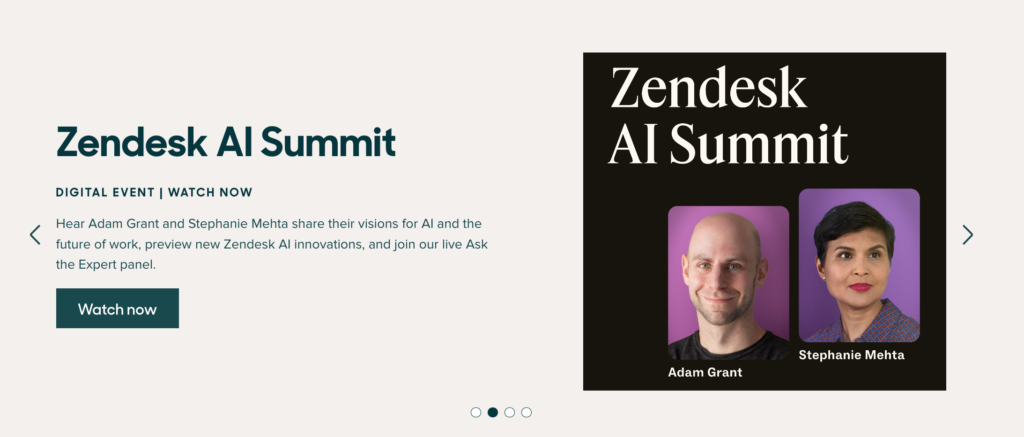
Approach:
Zendesk hosted the AI Summit, featuring influencers who shared insights about customer service trends and demonstrated Zendesk’s solutions.
Influencers participated in keynote sessions, created blogs, and shared live updates on social media. They also discussed how Zendesk’s tools could address challenges businesses face in customer support.
Success:
The summit enhanced Zendesk’s credibility, attracting businesses looking for robust customer service solutions. The campaign focused on educating the audience about industry trends, which naturally positioned Zendesk as a solution provider.
7. Semrush’s Small Business Big Results
SEMrush is an SEO and digital marketing platform used by businesses worldwide.
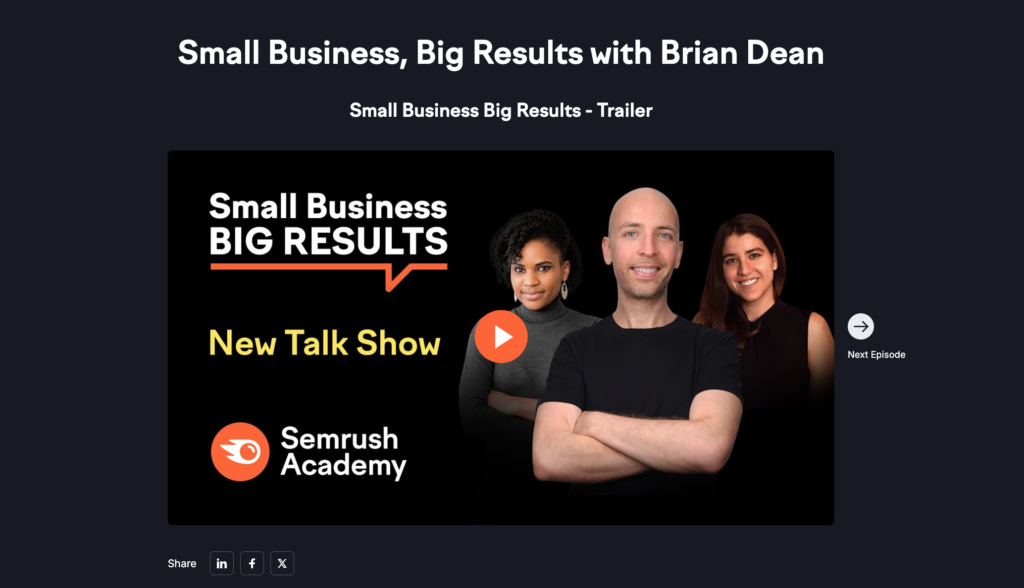
Approach:
SEMrush’s Small Business, Big Results campaign targeted small business owners, solopreneurs, and startup marketers. The initiative was built around a podcast and video series hosted by SEO expert Brian Dean, founder of Backlinko.
The series featured interviews with successful small business owners and marketers, offering practical advice on key topics such as hiring, mistakes to avoid, outsourcing tasks, and scaling online visibility.
Success:
The campaign resonated deeply with small business owners, drawing thousands of listens and views across its platforms. It generated high engagement on social media, with users actively sharing and discussing the content.
How to Do B2B Influencer Marketing: A Simple Guide
B2B influencer marketing might sound complex, but it’s a powerful tool when done right.
By collaborating with key industry figures, you can boost your credibility, expand your reach, and generate quality leads.
Here’s how to make B2B influencer marketing work for you.
1. Define Your Goals
Before jumping into influencer marketing, know what you want to achieve. Are you looking to generate leads? Increase brand awareness? Or perhaps establish thought leadership?
Clear goals will help you choose the right influencers and measure success effectively.
Set SMART goals (Specific, Measurable, Achievable, Relevant, Time-bound). This will keep your campaign focused.
2. Identify the Right Influencers
Choosing the right influencers is critical.
In B2B, you’ll want to collaborate with industry leaders, thought leaders, and respected figures in your niche. They should have authority in your field, but also an audience that aligns with your target customers.
Use tools like BuzzSumo or LinkedIn to find influencers in your industry. Look at their engagement rate, relevance to your audience, and credibility.
3. Build Relationships First
Don’t just dive into asking influencers to promote your product. Start by engaging with them on social media, commenting on their posts, sharing their content, or even reaching out with personalized messages. Building trust is key.
Pro Tip: Follow them on LinkedIn and engage with their posts. Be genuine and add value to their content with thoughtful comments.
4. Craft the Right Message
The content you want to promote should be clear, concise, and valuable to the influencer’s audience.
Whether it’s a guest blog post, a webinar, or a product demo, ensure the content resonates with both the influencer’s followers and your target audience.
Use tools like Grammarly to ensure your content is free of errors and polished. Keep the message direct and focused on providing value to the audience.
5. Offer Fair Compensation
In B2B influencer marketing, compensation can range from monetary payments to product offerings, free trials, or exclusive access to your services. Ensure that your offer is fair and in line with the influencer’s value.
6. Collaborate on Content
Give influencers creative freedom while providing them with the key messages and talking points. Whether it’s a webinar, blog post, or social media post, let them infuse their personality into the content. This makes it more authentic.
7. Measure Success
Track key metrics like engagement rate, traffic, leads, or sales generated from the influencer’s promotion. Analyze what worked and what didn’t for future campaigns.
Use UTM links to track traffic and conversions from influencer posts in Google Analytics. Monitor engagement through social media analytics tools like Sprout Social.
Don’t just focus on social media!
Influencer marketing goes beyond Instagram. You can partner with industry experts for webinars, podcasts, or even co-hosting events.
Micro-influencers with niche, highly engaged audiences can sometimes be more impactful than macro-influencers.
Moreover, Authenticity is the key to influencer marketing.
By following these steps, you’ll be well on your way to executing an effective B2B influencer marketing campaign.
Leave a Comment